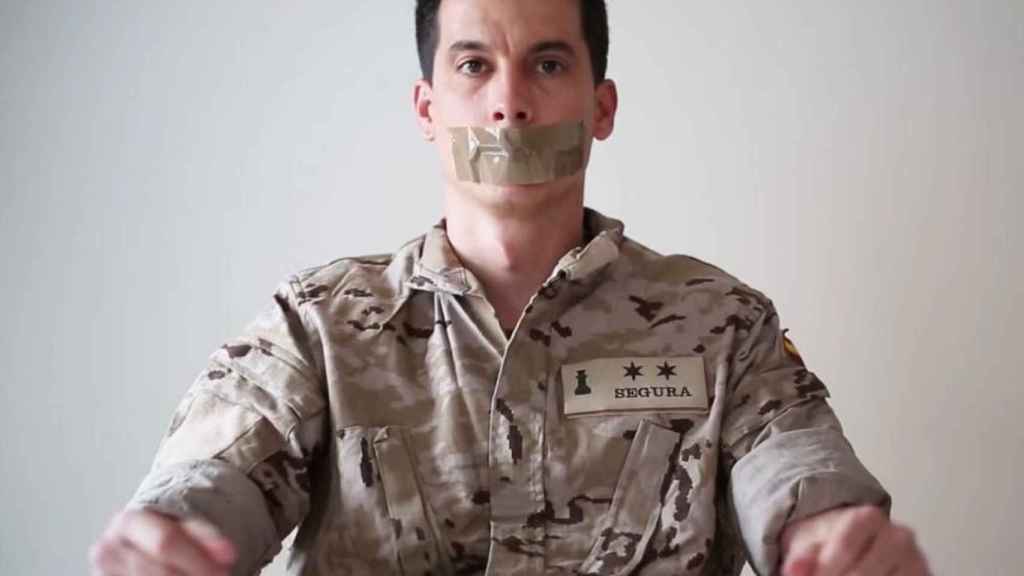
Luis Gonzalo Segura is a former lieutenant who was expelled from the Spanish military for being a whistle-blower who denounced corrupt practices in the military. He was expelled from the Army for his public criticism of the military high command and has presented numerous complaints before the military justice system in order to be reinstated. He lost his final battle for reinstatement on January 25, 2019, when Chamber V of the Spanish Supreme Court, which handles military matters, affirmed the punishment of two months arrest on former Lieutenant Luis Gonzalo Segura for a serious offense, based on declarations he made to various media outlets denouncing alleged corruption in the Army. This decision also denied his recourse against the disciplinary sanction that provoked his expulsion from the Army. After accumulating three sanctions, expulsion from the Army is final under military discipline. His lawyers have announced that they will seek recourse before the Spanish Constitutional Court and the European Court of Human Rights.
Segura's defense lawyers requested the Military Chamber of the Supreme Court to "declare null the resolutions sanctioning him", which led to his expulsion. His lawyer pointed out that the Central Military Tribunal sentenced him in 2017 for a serious offense based on the disciplinary code of the Civil Guard, which was a mistake because members of the Army have to obey the disciplinary regime of the Armed Forces, not the Civil Guard.
Luis Gonzalo Segura in 2009 filed complaints on irregularities that he had observed in his unit. Since his complaints had no effect, in 2011 he took the matter to court but his complaint was dismissed. In 2014 he wrote a book entitled "Un paso adelante" (One Step Forward). After his book was published he was arrested and spent 139 days in custody. In order to protest, he spent 22 days on a hunger strike. At the end he was expelled from the Army after 13 years of service. After that experience he wrote his novel "Codigo rojo" (Red Code) and recently he published "El libro negro del ejercito espanol" (The Black Book of the Spanish Army), which documents, in approximately 900 pages, the abuses and corruption in the Army at present.
Segura charges that the military justice system protects the corrupt and that these corrupt officials are causing terrible damage to the Army. He charges that it is notorious that corruption cases are not punished and that this generates impunity and furthers more corrupt practices. For example, in the unit in which he served, his predecessor was a lieutenant convicted of stealing 96 laptop computers and selling them on E-Bay. That man remains in his job. The military person who replaced him was convicted of sexual harassment, but also continues in the Army. And 200 meters from where he worked, in his last post, there was a captain convicted for 27 cases of sexual abuse and he continues in his post. They continue in the Armed Forces and I got expelled, he complains. That means that we have a very serious problem, he concluded.
The remedy, Segura suggests, is an independent and impartial justice system that complies with international standards. If the military justice system had independent and impartial judges it would be one of the pillars that would help the present system collapse. If the ordinary justice system would try a colonel it would be much easier to have justice. But it is very difficult if the justice system is comprised of a judge who is subordinate to the colonel. A military judge does not have the conditions to be independent and impartial. Spain has signed a reservation to Articles 5 and 6 of the European Convention on Human Rights, making reference to military tribunals. And it has done this because it does not wish to guarantee human rights in the military.
For further commentary on this and another Spanish case seehttps://diario16.com/encubre-la-justicia-militar-los-corruptos-condena-los-denunciantes/. "The Armed Forces and the institutions that are governed by the military code, such as the Civil Guard, have internal codes of behavior that have nothing to do with the Law: hierarchy, honor, discipline. However, this fact is not justification for crimes of corruption perpetrated by the military to be investigated or tried by the military courts, because they leave the complainants at the feet of the horses." (Rough Google translation.)
ReplyDelete